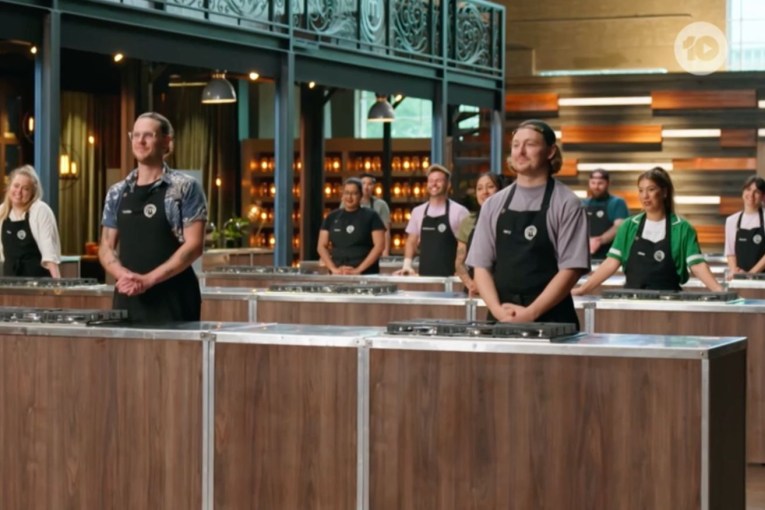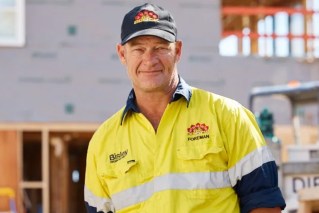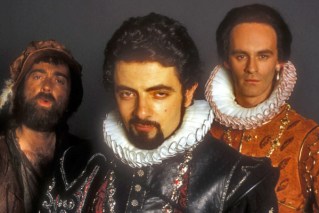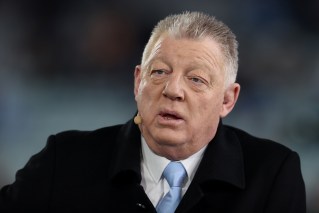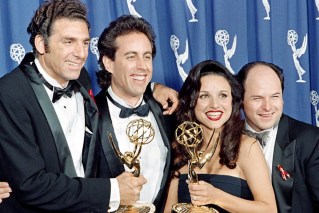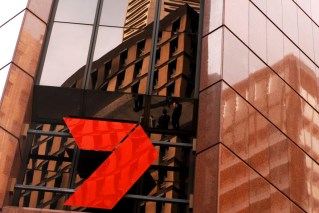Analogue TV moments: Lionel Rose world title fight

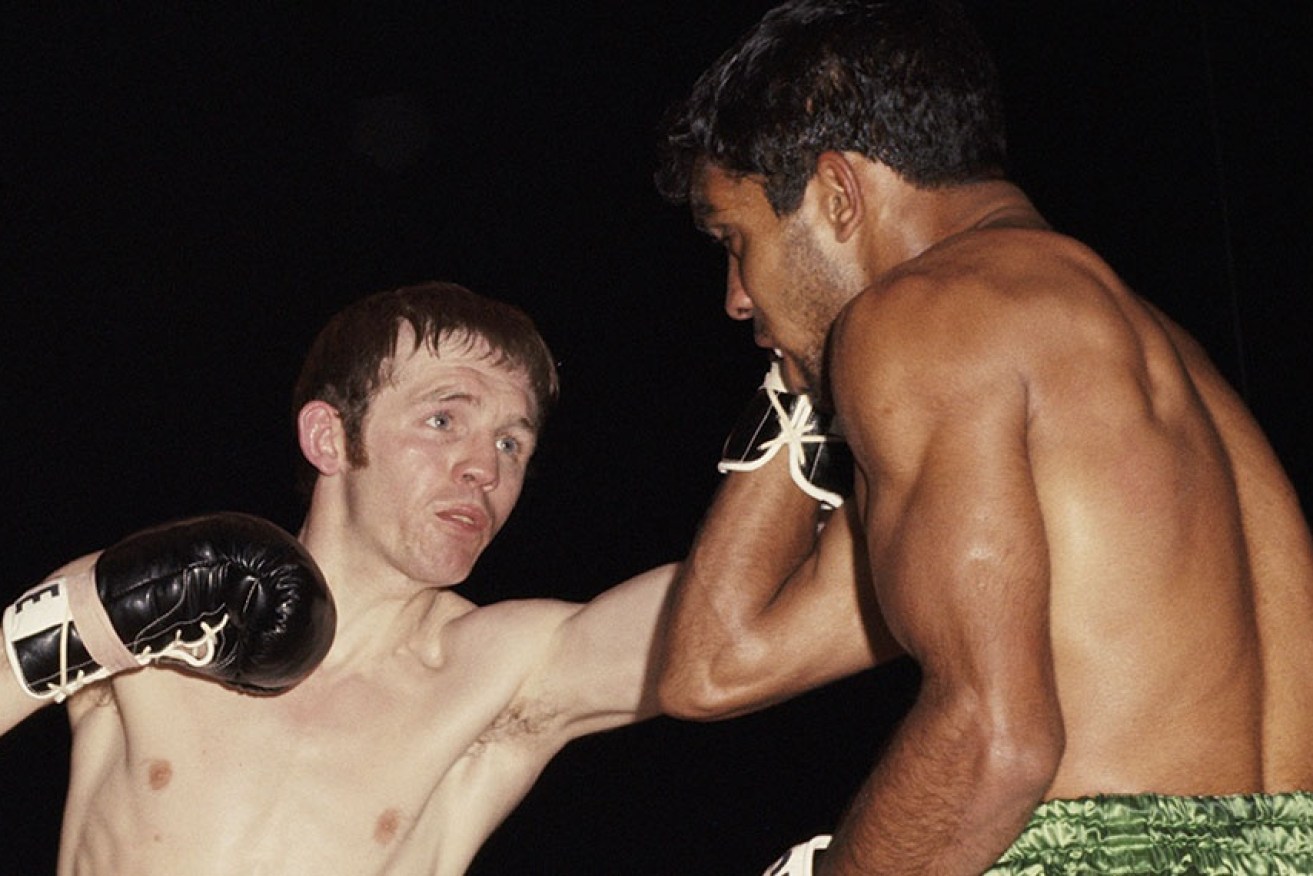
Getty
Boxing is show business with blood.
In the summer of 1968, Sir Reginald Ansett, founder of his eponymous Ansett Airline and owner of Channel ATV O (later to become the Ten Network), was a mogul in search of ratings.
Sir Reg had tried everything by way of show business. Sir Reg needed blood.
As luck would have it, the reigning World Bantamweight Boxing Champion and Australia’s newest national hero was the gutsy and laconic Aboriginal pugilist, Lionel Rose, who had claimed his world title only the year before in Tokyo by defeating the Japanese champion Fighting Harada
Sir Reg was a man not afraid to take a punt, and immediately, desperately, sensed the broadcast possibilities of the foreshadowed world title fight between Rose and the current British champion, Merseyside demigod and one of the greatest boxers Britain has ever produced, the gritty ring strategist, Alan Rudkin.
Sir Reg moved into top gear and acquired the rights for the title bout to be fought over the usual 15 Championship rounds at Melbourne’s Kooyong Stadium, the then-home of the Australian Open Tennis Championship, on March 8, 1969.
The subsequent television spectacle was a superb demonstration of not only the art of fisticuffs, but of the application of the laws of physics to television programming: just as gas expands uniformly to occupy the available space, so television events expand indefinitely to fill the available programming schedule allocated to them.
As an experienced aviator and practical student of physics, Sir Reg knew what needed to be done to wring every last ounce of value and ratings from his world title bout. Sir Reg ordered his programmers to dedicate hours and days and weeks of scheduled programming to the forthcoming title fight.
Courtesy of Sir Reg’s cameras, we witnessed the English champion Rudkid’s arrival in Australia, Rudkind’s press conference, Rose’s press conference, Rudkid’s and Rose’s interviews, specials on Rose and specials on Rudkin. After a couple of weeks, Channel O’s programming smelt of sweat and linament.
On the day of the fight, Sir Reg optimistically kicked off Channel O’s title fight telecast at 8am with the weigh-in of the two boxers and then continued his coverage for the better part of the day. By the time the actual fight time arrived, 12 hours later, most of Australia felt like the two contestants had already fought each other several times over.
Through today’s eyes, the telecast of Sir Regs’s spectacle is a blurry static dated period piece. With the exception of a couple of female airline hostess who Sir Reg had apparently seconded to beautify the surroundings, the spectacle was an all-male affair. The packed stadium of men wore suits and shoelace thin ties and puffed on cigarettes so vigorously that a pall of smoke hung permanently above the ring and the cameras spent the evening trying to penetrate the smog, like Ansett Fokkers trying to land without instruments in Los Angeles.
The boxing ring was bedecked with Ansett Airlines banners and Ansett posters and Ansett paraphernalia. Outsized Ansett logos decorated the turnbuckles and dominated the ring canvas. Ansett was emblazoned everywhere. Sir Reg was leaving no commercial stone unturned.
A lonely, reedy Lowrey organ played both national anthems in the style of Bert Kaempfert’s “A Swinging Safari” and Rose, the champ, kept Rudkin, the challenger, waiting for five minutes, as he was entitled to do and as Sir Reg had no doubt orchestrated in a final bid to crib five more minutes of peak viewing time.
“I want youse to punch with the knuckle part of the glove. I want youse not to use the side of youse glove. Shake hands and when the bell rings I want youse to come out fighting”, articulated the ring referee to the nationwide audience.
The fight was scheduled for 15 three-minute rounds and, from the great gymnasium-in-the-sky, the trainer-in-chief smiled on Sir Reg that night. The fight absorbed all available space and went right down to the wire. Rose, who had won the earlier rounds, ran out of puff, and Rudkin gamely insisted on stepping up right to the final bell.
In a split points decision — two judges for Rose, one for Rudkin — Rose retained his title on points. Some critics called it a hometown decision; but none of those critics were watching Channel O or resided in Australia.
Immediately after the fight, Sir Henry Bolte, Premier of Victoria, burst into the ring, so ensuring the further extension of the broadcast. To the resounding hoots and hollers of the crowd, Bolte presented Rose with his trophy and then commenced shaking hands with everyone in the ring including the security contingent and the cut men. Bolte’s enthusiasm for the event did not go unnoticed, and following Bolte’s retirement as Premier, he was appointed to the board of Ansett.
Sir Reg, too, found his way into the crowded ring but was doing way less hand shaking and more number crunching. Sir Reg’s gamble had paid off. A whopping 72 per cent of all households in Australia watched the event that March night.
In fact, the Rose/ Rudkin title fight would become the highest-rating telecast in Australian televison history by a country mile, a record held for over three decades, surpassed only by the Opening Ceremony of the Sydney Olympics.
As for Lionel Rose, his televised victory paved the way for his next natural career move — country and western music. Between winning and losing his title several times over the next few years, Lionel unforgettably recorded a country and western single, “I Thank You”. Just as Rose had belted Rudkin about the ears on that memorable Autumn night, so he would do to the Australian listening public in perpetuity via his vinyl cantillations.
Years later I was having a drink or dozen with the champ, and I asked Lionel, did he know that he still held the record for the greatest television viewing audience in Australian history? Ever?
“Really?” said Lionel.
He thought for a second.
“Should have got them to pay me by the eyeball eh? Still, mustn’t grumble. Wouldn’t be dead for quids”.
And then Lionel started to sing…
